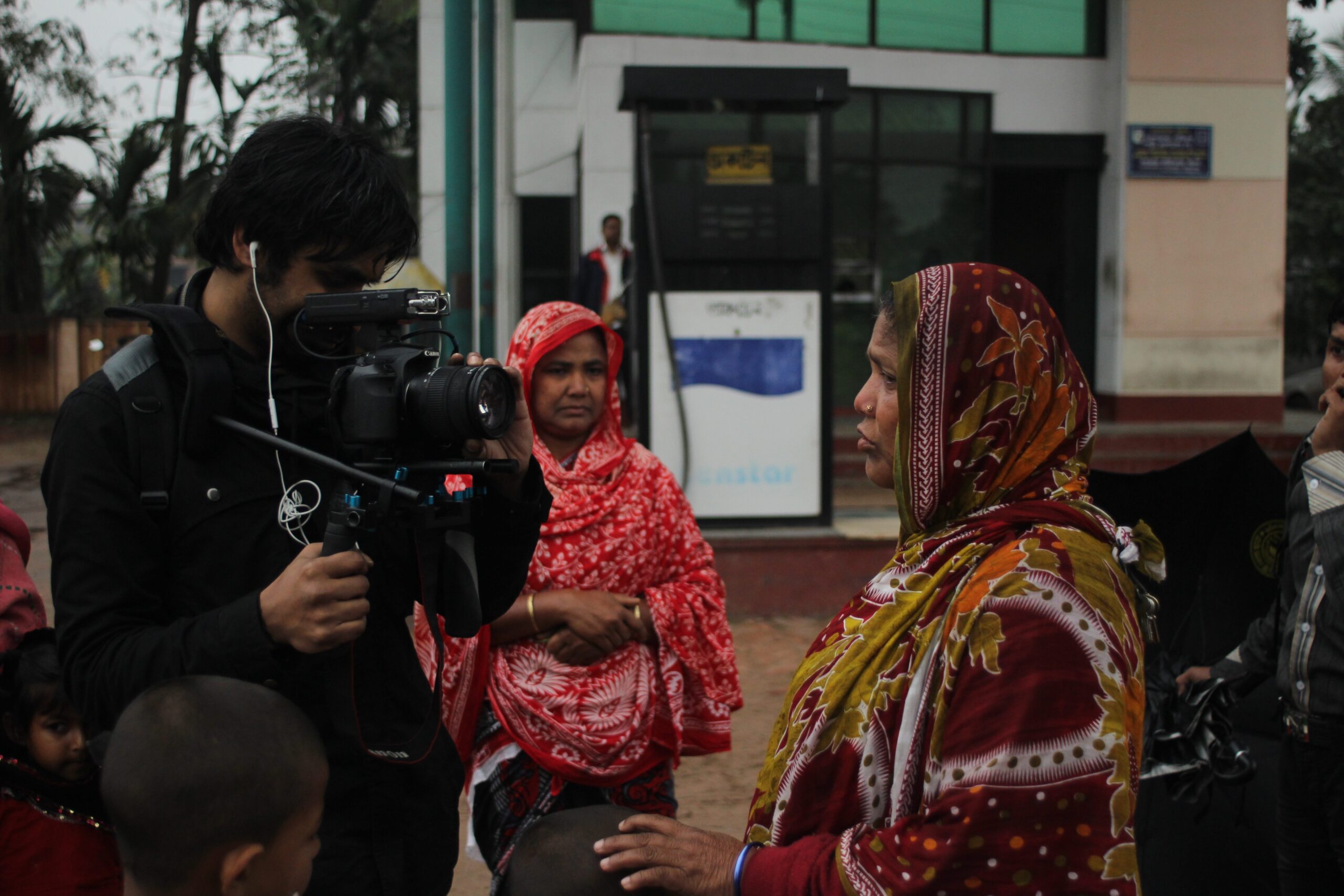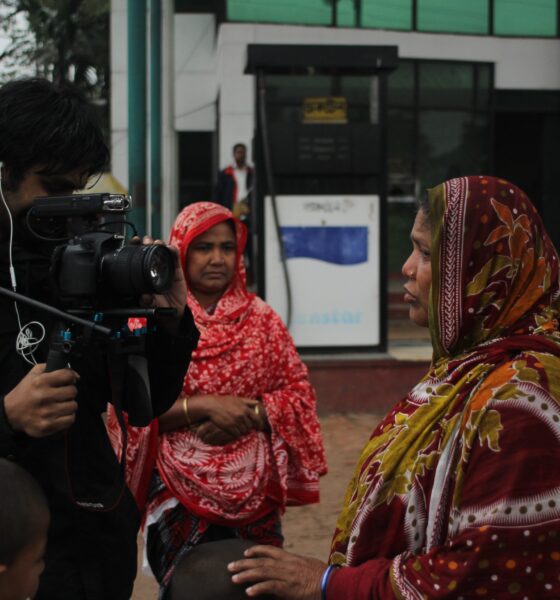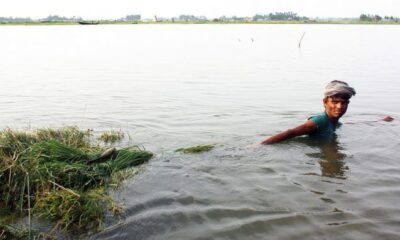

Environment
Raising for Rana: marking the anniversary of Rana Plaza
April 24 2014 will mark the first anniversary of the collapse of the Rana Plaza garment factory in Bangladesh, which claimed the lives of 1,129 people.
The tragedy was seen as a wake-up call to a western fashion industry that had been operating an unsustainable supply chain for decades, and campaigners have spent the past 12 months demanding that the fashion brands whose clothes were made in the factory sign up for a stricter set of safety regulations.
At times, it has seemed that this call for corporate responsibility has been slightly sterile, obscuring the stories of the real people affected by the Rana Plaza collapse: families of the dead, injured survivors, a whole community that relied on the factory for work. Rainbow Collective‘s dedicated initiative Raising for Rana is bringing that focus back to Bangladesh with an event in London on the anniversary of the tragedy, featuring the premiere of its new not-for-profit documentary, Tears In The Fabric.
The film, by Hannan Majid and Richard York, follows the life of Razia Begum, a grandmother who is caring for her two young grandsons after losing her two daughters and a son-in-law in the disaster. While having to come to terms with an enormous personal loss, Razia is also struggling with homelessness – the result of losing her family’s livelihood – and fighting for compensation from the brands involved in the disaster.
Rainbow Collective seeks to shape the Bangladesh clothing industry positively, to create a future for Razia’s grandchildren and their community. “The brands need to look at the way that they are doing business in Bangladesh and, rather than exploit the workforce for as many hours and as little pay as possible, should be looking at how they can develop the industry into a safe and happy workplace“, says Danielle Gregory, volunteer event co-ordinator at the organisation. “The garments industry has had a huge positive impact on Bangladesh’s economy and society and employment has increased – especially for women – but this shouldn’t be done through cheap labour and exploitation.”
Raising for Rana will also include a charity auction featuring ethically produced clothing, accessories, homeware and other items donated by a variety of businesses, with 100% of funds raised reaching Rainbow Collective’s partners on the ground in Bangladesh.
Angela Pereira Alves, director of Dew Organic Clothing, is among the fashion designers offering contributions – in her case, a one-off LBD: a demonstration of a dedication to ‘slow fashion’ in the face of industry pressure.
“Sales are becoming more and more frequent and new collections arrive in store every few months“, she says. “It leaves people feeling pressurised to get the latest trend and wanting more; the retailers are pushing the ‘we must get it now before it goes’ trigger buttons. The cleverly orchestrated marketing campaigns are such a powerful tool, even using the study of psychology behind consumer behaviours. Consumers are made to become ’emotional prisoners’ in this selfish cycle of consumerism.
“What we need to understand also is that this fast fashion culture has only been made possible by the direct exploitation of thousands of people in developing countries and outrageous disrespect for our beautiful planet.”
Gregory agrees that the buying public has an integral role to play: “Consumers must understand that cheap clothes usually means cheap labour. As consumers we have a responsibility to demand that our clothes are made fairly and to pressure the brands into signing up to the new fire and building safety agreement.”
Pereira Alves is also calling on independent organisations to step in as advisers, assessors and supervisors in collaboration with industry experts, and for the government to offer support to businesses that opt to become more ethical.
She adds: “There is a fine balance between promoting successful businesses, helping economies in developing countries and growing employment opportunities but nothing tells us that it cannot be done in a safer, more respectful and ethical environment.”
The Raising for Rana event will take place on Thursday April 24 at Regent’s University London. Donations are being accepted via www.justgiving.com/NGWF and charity auction bids at www.myminiauction.com/rana, while businesses are still invited to donate products and services towards the fundraiser. Please contact Raising for Rana via email. The documentary Tears In The Fabric will be available to watch online from April 25.
Morwenna Kearns is a freelance writer, online editor and PR and social media manager for businesses and organisations running the sustainability and ethical gamut, from fashion to food to filmmaking. She also works within the visual communications sector. Morwenna can be found tweeting as @morwennakearns, blogging about ethical fashion and beauty at GreenGlitter.co.uk and editing environmental business news at SustainableReview.net.
Further reading:
A manifesto for fashion that truly challenges the status quo
Is a passion for fashion compatible with a concern for the world around us?
The True Cost: the future of fashion is on sale




























